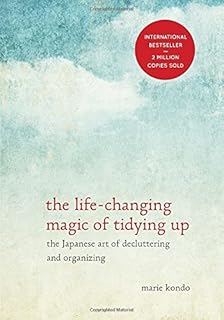gerund (Also gerunds) : Related Words Words similar in meaning to gerund
- gerund«
- gerundive«
- verb«
- gerundial«
- grammar«
- group«
- infinitive«
- participle«
- verbal noun«
- term gerund«
- deverbal noun«
- form«
- morphology«
- verbal«
- clause«
- syntax«
- finite clause«
- descriptive grammar«
- thinking«
- prescriptive grammar«
- supine«
- traditional grammar«
- progressive verb«
- object«
- present participle«
- noun«
- latin gerund«
- newspaper«
- doer«
- gerundively«
- ambridge«
- sentence«
- finite verb form«
- function«
- -ando«
- catenative verb«
- action noun«
- adverbial participle«
- cream«
- adverb«
- cat«
- pattern 4b«
- pattern 4a«
- -ing«
- english«
- pattern«
- adverbial«
- gerund clause«
- meaning«
- pure verbal noun«
- subject«
- finite verb«
- gerund phrase«
- suffix«
- larger sentence«
- entail«
- tomorrow«
- language«
- beran«
- preposition«
- west germanic gerund«
- possessive subject«
- pattern 5a«
- masdar form«
- gerundium«
- form gerund«
- equivalent passive construction«
- distinction«
- prize«
- direct object«
- computer«
- gérondif«
- -endo«
- try«
- verb pattern«
- analogy«
- cake«
- phrase«
- prescriptive grammarian«
- -ant«
- detail«
- inflection«
- dread«
- syntactic context«
- postpone«
- risk«
- consider«
- experienced opponent«
- need«
- grammatical subject«
- dislike«
- see«
- chance«
- latin teacher«
- common suffix«
- abstract noun«
- paul«
- non«
- english verb«
- complementation«
- sens«
- commence«
- student«
- dan«
- latin grammar«
- start«
- subset«
- possessive«
- verb form«
- jim«
- stop«
- shouting«
- mind«
- apricot«
- wine«
- teacher«
- meg«
- believe«
- ninja«
- with object«
- west frisian freegje«
- vẽnãtiõ«
- verbals adjective form«
- verb ending subject«
- traditional gerund«
- term деепричастие«
- term participle«
- syntactic equivalent«
- suffix -я«
- strict grammatical correctness«
- spanish gerundio«
- romanian gerunziu«
- role f«
- reflexive pronoun e.g.«
- referral particle«
- recommend verb«
- property noun«
- progressive aspect meaning«
- possessive brown«
- portuguese gerúndio«
- pattern 6b«
- pattern 6a«
- pattern 5b«
- pattern 3b verb«
- others with«
- old saxon berannia dative«
- old frisian beranne«
- noun property«
- nominal inflectional«
- modern continental successor language german«
- linguistic snobbery«
- jadejki«
- italian gerundio«
- inifnitive pattern«
- infinitive spread«
- infinitive pattern«
- infinitival prefix«
- infinitival construct«
- individual english verb«
- hominem investigando opera dabo«
- gerundive construction e.g.«
- french stem form«
- freegjen«
- form gerundive«
- finite gerundium«
- evertendae reipublicae«
- dependent sentence element«
- deepriʧastije«
- commonest verb«
- cobuild team«
- cobuild guide analysis«
- cobuild guide«
- cobuild data bank«
- catalan gerundi«
- beranne dative«
- bare infinitive pattern«
- adjectival inflexional ending«
- ad discernendum vocis verbis figuras«
- abstract noun object«
- -vʃi«
- -jki«
- -ind«
- -enie«
- -endum«
- -andum«
- vestige«
- suffix -јќи«
- single complex action«
- several romance language«
- pływanie«
- progressive meaning«
- passivisation«
- participe présent«
- noun expression«
- modern reference grammar«
- infectum stem«
- geriple«
- clause element«
- adás«
- adjectival gerundive«
- adjectival function«
- turkish gerund«
- noun inflexion«
- imperfect tense form«
- clause similar«
- -te form«
- -iendo«
- perfect progressive aspect«
- notional subject«
- fantasise«
- active clause«
- traditional english grammar«
- grammatical connection«
- contrast«
- traditional grammarian«
- tanwin«
- molesworth book«
- verb noun«
- principal choice«
- lawrenceville story«
- -ent«
- slight distinction«
- rare construction«
- possessive noun«
- envisage«
- example«
- term subject«
- complete clause«
- visualise«
- passive clause«
- gerundive form«
- finite verb phrase«
- adverbial function«
- recommend«
- ordinary noun«
- spectrum«
- entire clause«
- present«
- english language«
- prescriptivists«
- concept«
- semantic class«
- well-formed«
- grammatical«
- grammatic«
- derivational morphology«
- inflectional morphology«
- grammarian«
- compound morphology«
- generative grammar«
- linguistics«
- syntactician«
- accidence«
- syllable structure«
- sociolinguistics«
- structuralism«
- dialect geography«
- phrase structure«
- synchronic linguistics«
- diachronic linguistics«
- etymology«
- neurolinguistics«
- word structure«
- pragmatics«
- prescriptive linguistics«
- semantics«
- linguistic scientist«
- linguistic geography«
- structural linguistics«
- historical linguistics«
- computational linguistics«
- linguist«
- sentence structure«
- sound structure«
- diachrony«
- Russian«
- Italian«
- 3a«
- Panini«
- Donatus«
- Aristarchus«
- Aelius Donatus«



